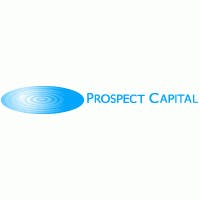Investors are attracted to the relative high dividend yields and potential capital appreciation of Business Development Companies, or BDC’s for short. BDC’s were created by Congress in the 1980’s to promote private equity investments in middle-market private companies and small capitalization public companies. BDC’s qualify for favorable taxation in a manner similar to that of REIT’s, and must pay 90% of income in order to retain this tax status. For investors, this often means double-digit dividend yields and an attractive investment for tax-deferred investment accounts. BDC’s also offer diversification that may not be found in traditional equity investments. But BDC’s are complex instruments versus other equities and require strong management teams and a solid financial structure. So what is a BDC and what are investors really buying?

Prospect Capital Corporation (NASDAQ:PSEC) is a BDC under the Investment Company Act of 1940. They currently pay nearly a 12% dividend rate on their common shares. The company is leveraged to 141% of net assets, and this investment is spread across 96 private and public companies that Prospect researches and invests in on behalf of their shareholders. These investments range in sectors from privately-owned oil and gas producers and cargo services to horseblanket retailer Dover Saddlery, Inc. (NASDAQ:DOVR). The fair value of these 96 investments is nearly $2.7 billion. In their latest quarter, Prospect’s investments amounted to a net income of $0.46 per share, and $0.31 of this was paid in the form of a dividend.
Similar to Prospect and Main Street, Apollo Investment Corp. (NASDAQ:AINV) must pay 90% of net income as a dividend and currently yields a healthy 9%. Apollo owns or invests in companies in varying industries. According to their 10-K, Apollo has 10.4% dedicated to Diversified Service, 9.9% to Education, and 7.5% in Healthcare. Apollo’s remaining investments are across another eighteen industries.
With investments across varied sectors, BDC management teams must be experienced, engaged, and well-rounded. Management must understand and be able to carry out complex financial transactions. They will team up with lawyers, bankers, and prospective buyers to get the best deal for their BDC. For these reasons, the experience of BDC management teams should be factored into any investment purchase. One of the best known CEO’s of a BDC, David Gladstone of Gladstone Capital Corporation (NASDAQ:GLAD) recently spoke of a winning business sale on the company’s quarterly conference call. Gladstone had valued plastic film manufacturer Viapack at $1.6 million on a recent balance sheet. But to the surprise of analysts and shareholders, Gladstone recently managed to sell Viapack for $5.9 million, for a gain of $4.3 million. David Gladstone explained that his company had found a strategic buyer that could integrate Viapack into their supply chain efficiently. For this reason, the buyer valued Viapack much higher than the $1.6 million value that Gladstone placed on Viapack. This is a great example of the type of benefit that experienced management can bring to a BDC. Without his reputation in the industry and vast network of contacts, Gladstone may not have unlocked this shareholder value.



